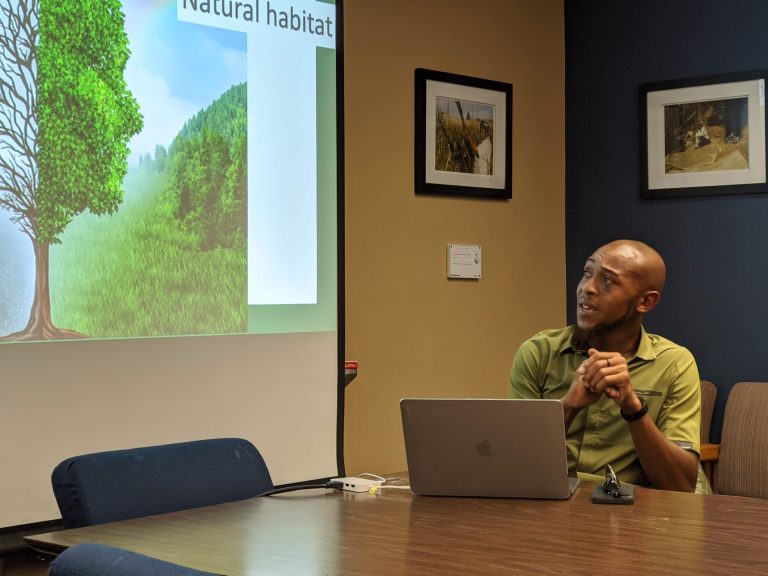 On Wednesday January 22, Bonginkosi Gumbi (University of Florida) gave a SASA lecture, “Deciphering the Adaptive Success of an African Rodent Pest (Mastomys natalensis). His lecture highlighted his preliminary work on landscape change and Mastomys natalensis, a common rodent pest in Africa, which is known to cause 80% of maize destruction and is a vector for multiple viruses contractable by humans. As landscapes have changed in Africa, natural, rural, and urban environments have become increasingly fragmented. It is expected that as landscape fragmentation increases, wildlife diversity and species richness decreases, while genetic differentiation and pathogen diversity increases.
On Wednesday January 22, Bonginkosi Gumbi (University of Florida) gave a SASA lecture, “Deciphering the Adaptive Success of an African Rodent Pest (Mastomys natalensis). His lecture highlighted his preliminary work on landscape change and Mastomys natalensis, a common rodent pest in Africa, which is known to cause 80% of maize destruction and is a vector for multiple viruses contractable by humans. As landscapes have changed in Africa, natural, rural, and urban environments have become increasingly fragmented. It is expected that as landscape fragmentation increases, wildlife diversity and species richness decreases, while genetic differentiation and pathogen diversity increases.
Unlike most mammals, rodents appear to be less impacted by habitat fragmentation and are adaptable to changing, diverse environments. However, this poses a challenge in regions with increasingly fragmented landscapes as rodents are predicted to become vectors for new, diverse pathogens across these spaces. Gumbi’s research seeks to test these predictions by asking 1) how does habitat type influence adaptive variation and 2) to what extent does habitat type influence pathogen abundance and diversity?